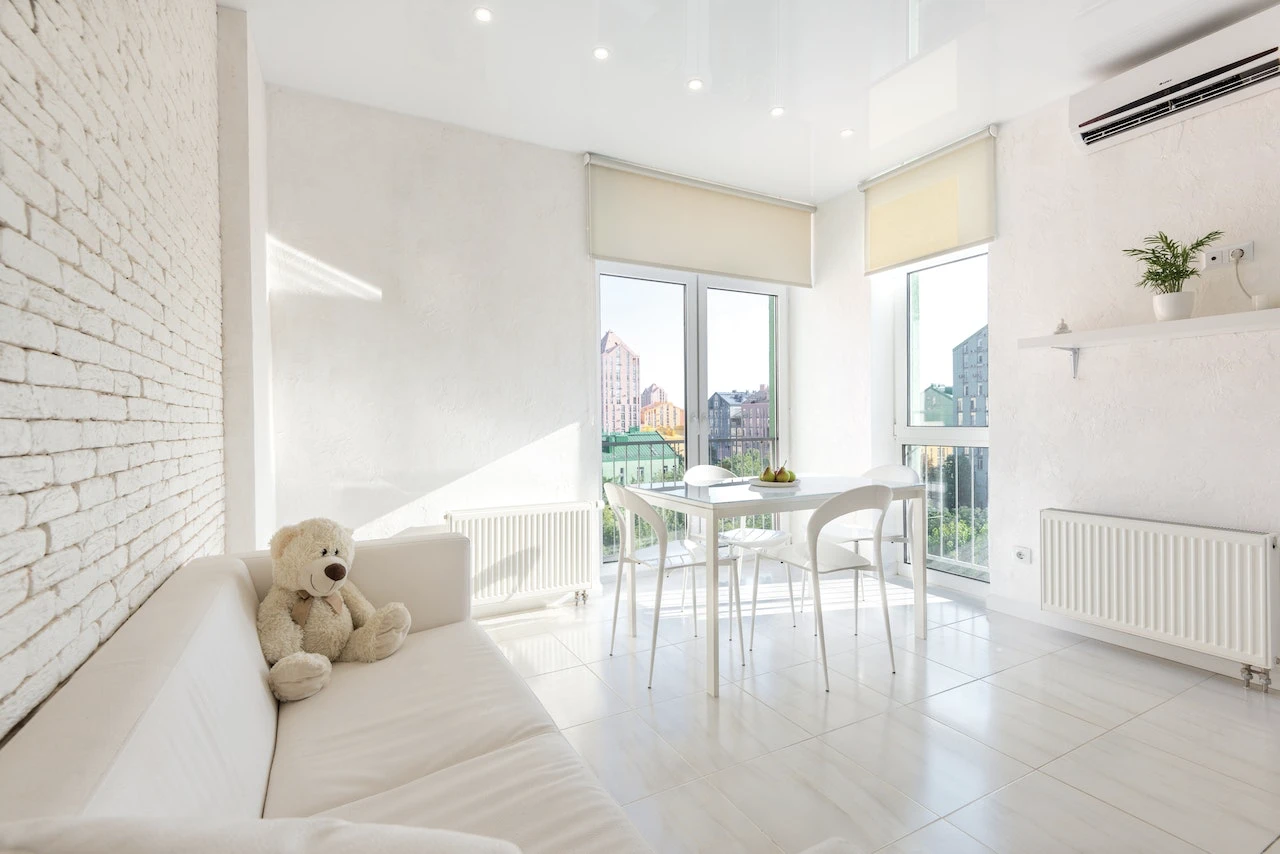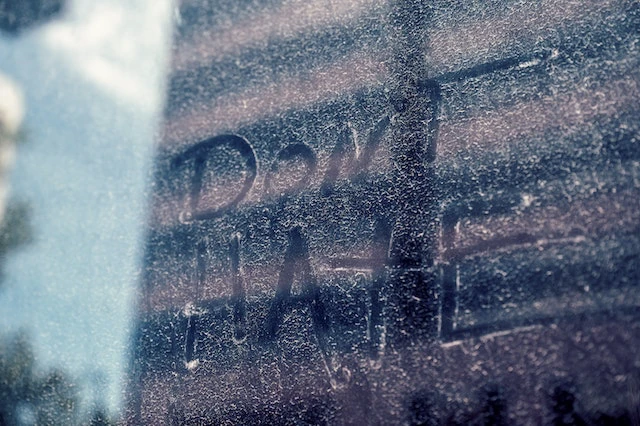Property Maintenance: Essential Tips for Property Owners
Property maintenance is a critical aspect of successful property ownership. Property owners who prioritize maintenance ensure that their investments remain in good condition and yield long-term benefits. Studies have consistently shown the positive impact of well-maintained properties on both tenant satisfaction and property value. According to a survey conducted by Buildium, an online property management software company, 75% of tenants report that property maintenance is a significant factor in their overall satisfaction. A well-maintained property provides tenants with a comfortable and safe living environment, fostering positive tenant-landlord relationships and reducing tenant turnover rates. Moreover, well-maintained properties tend to attract higher-quality tenants and command higher rental rates. The National Association of Realtors also emphasizes the positive correlation between property maintenance and increased property value. Regular maintenance not only helps preserve the condition of the property but also enhances its curb appeal, contributing to its market value and potential return on investment.
Well-maintained properties tend to attract higher-quality tenants and command higher rental rates.
By understanding the importance of property maintenance, property owners can safeguard their investments and create a positive living experience for their tenants while maximizing the value of their properties.

Establishing a Maintenance Plan
Having a structured maintenance plan is essential for property owners to proactively address maintenance needs and ensure the longevity of their properties. A well-designed maintenance plan offers several benefits, including cost savings and reduced risks. According to a report by the International Facility Management Association, implementing a planned maintenance program can result in up to 18% cost savings compared to reactive maintenance approaches. By addressing maintenance issues before they escalate, property owners can prevent costly repairs and extend the lifespan of various components within the property.
Creating a checklist of regular maintenance tasks is a crucial component of a maintenance plan. This checklist serves as a reference guide for property owners, ensuring that no essential maintenance tasks are overlooked. Regular maintenance tasks may include HVAC system inspections, gutter cleaning, plumbing checks, and landscaping upkeep. By following a checklist, property owners can stay organized and maintain consistency in their maintenance efforts. Property owners can leverage technology tools such as property management software or mobile apps to streamline their maintenance checklists and ensure timely completion of tasks. By establishing a maintenance plan and adhering to a checklist, property owners can effectively manage their maintenance responsibilities and promote the long-term health and value of their properties.
Exterior Maintenance
Maintaining the exterior of a property is crucial for creating a positive first impression and preserving its curb appeal. A well-maintained exterior not only enhances the property's visual appeal but also plays a significant role in attracting and retaining tenants. Studies have shown that properties with attractive and well-maintained exteriors tend to command higher rental rates and experience lower vacancy rates. According to a study by the National Apartment Association, 78% of renters consider the exterior appearance of a property as important or very important in their rental decision-making process.
To ensure the property's curb appeal, property owners should prioritize regular inspections and maintenance of the building's exterior elements. This includes maintaining a well-manicured and inviting landscape, which can significantly enhance the property's overall aesthetic appeal. Studies have indicated that strategic landscaping can increase property value by up to 20%. Property owners should also pay attention to the condition of the building's paint and make necessary touch-ups or repaint when needed. Additionally, regular roof inspections and maintenance are essential to prevent leaks, water damage, and costly repairs down the line. The National Roofing Contractors Association recommends inspecting the roof at least twice a year to identify and address any issues promptly. By investing in regular exterior maintenance, property owners can create an appealing and well-maintained property that attracts tenants and maintains its value over time.
Interior Maintenance
Maintaining the interior of a rental property is essential for providing a safe and comfortable living environment for tenants. Property owners have a responsibility to ensure that the property's interior is well-maintained and meets all necessary safety standards. According to a survey conducted by Buildium, 80% of renters cited the condition of the property as a significant factor in their decision to renew their lease.
When it comes to interior maintenance, property owners should focus on key areas such as plumbing, electrical systems, and HVAC (heating, ventilation, and air conditioning). Regular plumbing maintenance, including inspections for leaks, clogs, and proper functioning of fixtures, is essential for preventing water damage and ensuring tenants have access to clean and functioning plumbing systems. Similarly, regular inspections of electrical systems can help identify any potential hazards and ensure the property meets electrical safety codes. Additionally, routine maintenance of HVAC systems, such as changing filters and conducting regular inspections, can help optimize energy efficiency, improve indoor air quality, and prevent costly breakdowns. By prioritizing interior maintenance, property owners can provide a comfortable and safe living environment for tenants, leading to higher tenant satisfaction and longer tenancy durations.
Preventive Maintenance
Implementing a preventive maintenance strategy is crucial for property owners to avoid major issues and costly repairs down the line. Taking proactive measures to identify and address potential problems before they escalate not only saves time and money but also enhances tenant satisfaction. According to a study by Buildium, 67% of renters expressed that responsive maintenance services positively influenced their overall satisfaction with the property.
Implementing a preventive maintenance strategy is crucial for property owners to avoid major issues and costly repairs down the line.
Scheduling regular inspections and performing preventive maintenance tasks can help identify and address small issues before they turn into significant problems. This includes conducting routine checks of plumbing systems, electrical wiring, HVAC units, and other critical components of the property. By staying on top of maintenance tasks such as replacing worn-out parts, servicing equipment, and addressing minor repairs promptly, property owners can prevent costly breakdowns and emergency situations. Additionally, creating a maintenance calendar or checklist can help ensure that preventive maintenance tasks are scheduled and completed in a timely manner. By investing in preventive maintenance, property owners can minimize disruptions to tenants, extend the lifespan of property components, and reduce overall maintenance costs in the long run.

Dealing with Repairs and Emergencies
Promptly addressing repairs and handling emergency situations is crucial for maintaining tenant satisfaction and minimizing property damage. Property owners should establish clear protocols and strategies to ensure efficient handling of repairs and emergencies. According to a survey conducted by Avail, 80% of tenants expect their landlords to respond to maintenance requests within 48 hours.
When it comes to repairs, it's essential to prioritize and categorize them based on urgency and severity. Some repairs may require immediate attention to ensure tenant safety and prevent further damage, such as plumbing leaks or electrical issues. On the other hand, minor repairs that do not pose an immediate risk can be scheduled and addressed in a timely manner. By promptly attending to repairs, property owners demonstrate their commitment to tenant satisfaction and create a positive living environment.
In emergency situations, such as fire, flood, or severe weather, property owners should have an emergency response plan in place. This plan should outline the necessary steps to ensure tenant safety, such as contacting emergency services, evacuating the property if needed, and communicating updates to tenants. By having a well-prepared emergency plan and promptly addressing repairs and emergencies, property owners can minimize tenant inconvenience, protect the property\s value, and maintain a positive landlord-tenant relationship.
Regular Cleaning and Upkeep
Maintaining cleanliness and tidiness is an essential aspect of property maintenance. Clean and well-maintained properties not only enhance tenant satisfaction but also contribute to the overall value and desirability of the property. According to a survey conducted by Buildium, 92% of renters believe that cleanliness is a critical factor when choosing a rental property.
Implementing a regular cleaning routine is vital to ensure a hygienic and presentable living environment. This includes tasks such as dusting, vacuuming, mopping floors, cleaning windows, and sanitizing common areas. Regular cleaning not only enhances the visual appeal of the property but also helps prevent the accumulation of dirt, dust, and allergens, which can impact indoor air quality and tenant health.
In addition to general cleaning, property owners should also prioritize specific upkeep tasks. This includes maintaining appliances, inspecting and cleaning HVAC systems, changing air filters, and ensuring proper functioning of plumbing fixtures. Regular upkeep tasks help identify minor issues before they escalate into major problems and prolong the lifespan of property components. By emphasizing regular cleaning and upkeep, property owners can create a welcoming and comfortable living environment for tenants while preserving the long-term value and integrity of the property.
Engaging Professional Services
There are instances when property owners need to hire professional contractors for specialized maintenance tasks that require expertise or specialized equipment. Knowing when and how to engage these services is crucial for efficient property maintenance. According to a survey by Rent.com, 58% of property owners rely on professional services for maintenance and repairs.
Certain tasks such as electrical work, plumbing repairs, or HVAC maintenance are best left to trained professionals. Hiring licensed and experienced contractors ensures that the work is done correctly and up to code, minimizing the risk of future issues and ensuring the safety of tenants. Additionally, professionals can provide valuable advice and recommendations for improving the property's overall functionality and efficiency.
Finding reliable and skilled professionals is essential for property owners. It is recommended to seek referrals from trusted sources, such as other property owners or local industry associations. Online review platforms can also provide valuable insights into the quality of service provided by different contractors. Obtaining multiple quotes and conducting thorough background checks on potential contractors can help property owners make informed decisions and choose the best professionals for their maintenance needs. By engaging professional services when necessary, property owners can ensure that specialized maintenance tasks are handled efficiently and effectively, contributing to the long-term success and value of their property.
Budgeting for Maintenance
Proper budgeting for ongoing maintenance expenses is a critical aspect of responsible property ownership. Setting aside funds specifically for maintenance ensures that property owners can address repair and upkeep needs in a timely manner, avoiding potential deterioration and costly emergency situations. A study by All Property Management found that 65% of property owners allocate a portion of their rental income to maintenance and repairs.
Creating a dedicated maintenance budget allows property owners to plan for both routine and unexpected expenses. By estimating the average annual maintenance costs based on historical data or industry benchmarks, property owners can set realistic budget targets. It is recommended to allocate around 1% to 4% of the property's value per year for maintenance and repairs. Additionally, setting up a separate savings account or reserve fund specifically for maintenance funds can provide a financial cushion for future expenses.
It is recommended to allocate around 1% to 4% of the property's value per year for maintenance and repairs.
Managing maintenance costs effectively involves tracking expenses, prioritizing repairs based on urgency and impact on tenant satisfaction, and exploring cost-saving measures without compromising quality. Regular monitoring of the budget and adjusting allocation as needed ensures that sufficient funds are available for maintenance needs. By budgeting for maintenance, property owners demonstrate a commitment to preserving their property's condition and value, promoting tenant satisfaction, and safeguarding their long-term investment.
Conclusion
Effective property maintenance is essential for property owners to ensure the longevity, value, and tenant satisfaction of their investments. By following the essential tips outlined in this article, property owners can establish a structured maintenance plan, address both exterior and interior maintenance needs, implement preventive measures, handle repairs and emergencies promptly, prioritize regular cleaning and upkeep, engage professional services when necessary, and budget appropriately for ongoing maintenance expenses.
By prioritizing property maintenance, property owners not only enhance the overall appeal and functionality of their properties but also foster positive tenant experiences and maximize their long-term returns. Well-maintained properties are more likely to attract and retain high-quality tenants, minimize vacancies, and command higher rental rates.
In conclusion, property maintenance is a key responsibility of property owners, and it should be approached proactively and systematically. By implementing the tips discussed in this article, property owners can ensure the optimal condition and performance of their properties, establish strong landlord-tenant relationships, and set the foundation for long-term success in the real estate market.
Looking for local agents?
Search, compare and connect with top-ranked agents. Find the best local agent & lower rates.




